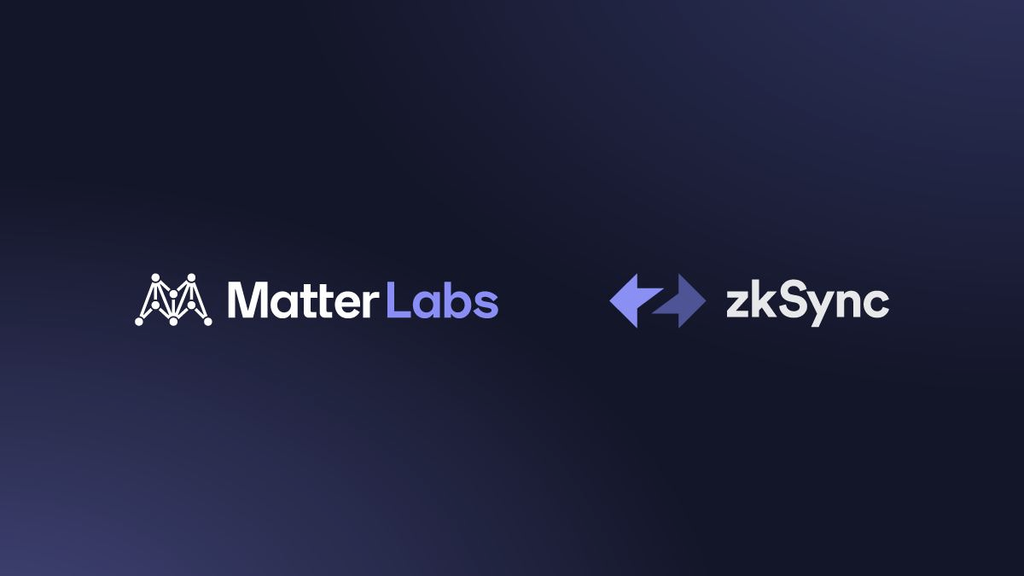Reward credit cards have traditionally offered cash back, points, or miles, but there’s a new game in town — crypto rewards.
More and more credit cards (and debit cards) now offer rewards in the form of cryptocurrency, either directly (e.g., 2% back in bitcoin) or by allowing you to convert regular rewards to crypto.
If you’re the type to buy the dip, you might consider these to be above-average deals that’ll pay off more and more over time. But if your crypto of choice is devalued, your credit card rewards will take a hit too.
Crypto reward cards come with some new considerations. You typically can’t control exactly when your crypto is bought, so you may end up buying at a relatively high price. Some cards have geographic restrictions, for legal reasons. And once you earn or convert rewards to cryptocurrency, it’ll be taxed like any other cryptocurrency.
Before getting a credit card or debit card with crypto rewards, consider typical cash back credit cards. You may be better off just earning cash back as normal and investing the savings in crypto. This would also let you avoid the transaction fees that some cards charge for reward-to-crypto redemptions or crypto sales, although you’ll typically end up paying exchange fees for buying crypto directly.
Credit Cards
BlockFi Rewards Visa Signature Credit Card

A solid offer all around, the BlockFi Rewards Visa Signature Credit Card is competitive with some of the best flat-rate rewards cards, like the Citi® Double Cash Card – 18 month BT offer (Review) and Chase Freedom Unlimited® (Review). The base reward rate is a bit lower, by the numbers, but if you think bitcoin is on the way up you might value it much higher.
It’s a nice way to automatically invest a bit every time you make a purchase. Cash back is converted to bitcoin and paid out monthly into your BlockFi account. Plus, cardholders get some nice perks to up the value of their BlockFi portfolios:
- 2% APY bonus, in bitcoin, on USD-backed stablecoin balances (up to $200 per year)
- 0.25% back in bitcoin on all eligible trades (up to $500 in bitcoin per month)
- $30 in bitcoin for every client referral (on top of BlockFi’s basic Refer-a-Friend program)
With no annual fee, no foreign transaction fee, and Visa Signature benefits, the BlockFi card doesn’t come across as a niche product; it fits right in to the reward credit card landscape.
Take note that as of July 2021, there are some geographic restrictions. Residents of New York, for example, aren’t currently eligible to apply.
SoFi Credit Card
Although you don’t earn crypto rewards directly with the SoFi Credit Card, you can redeem SoFi points for bitcoin or Ethereum if you have eligible accounts. You’ll need a SoFi Invest and SoFi Crypto account to convert points to crypto.
At 2X points per dollar and 1 cent per point, you’re effectively earning 2% back in either cryptocurrency — a great deal for a simple card with no annual fee. Not only is it one of the strongest cards for earning crypto, it’s just as good as the best flat-rate rewards cards (or better, given crypto futures).
This could make the SoFi card a much more attractive offer; it previously only gave the 1-cent-per-point rate for redemptions like loan payoffs and traditional investments.
Gemini Credit Card™
The Gemini Credit Card™ has a pair of attractive features that set it apart from most other crypto rewards cards:
- More cryptocurrencies to redeem in: Every currency on Gemini is eligible, which includes BTC, ETH, LTC, DOGE, BCH, UNI, YFI, and many more.
- Real-time rewards in most cases: The cryptocurrency is purchased at the time of the transaction, rather than in monthly batches.
Those features alone make the Gemini card a top contender, but it has quite a bit more to offer. You’ll earn 3% back on dining, 2% on groceries, and 1% everywhere else. You spend fiat currency (e.g., USD) and earn rewards back in crypto, which are automatically deposited into your Gemini account.
There’s no annual fee, and it’s a metal card available in black, silver, or rose gold.
Other than that it’s a pretty standard Mastercard, but as of July 2021 there’s a waitlist to apply. You don’t need to be an existing Gemini customer, but Gemini will create an account for you if you apply.
Upgrade Bitcoin Rewards Visa®
A crypto card from an unlikely source, the Upgrade Bitcoin Rewards Visa® earns a respectable amount of bitcoin. But it offers little else for the discerning credit card user, and crypto hodlers may not be satisfied with the limited control they’ll have over their bitcoin.
1.5% back in bitcoin is nothing to sneeze at, but here’s the fine print:
- You’ll only earn bitcoin back on payments to pay off your card (rather than purchases themselves, like most cards).
- Bitcoin rewards are purchased 1–2 statement periods after they are earned, based on the reference rate at the time of bitcoin purchase (not when the original card transaction occurs).
- You’re subject to a 90-day holding period after the first bitcoin purchase on your account, and you can’t sell bitcoin rewards during that time.
- Bitcoin rewards can only be “sold” for statement credits to pay off your account balance.
- Bitcoin reward “sales” for statement credits incur a 1.5% fee.
- Bitcoin rewards can’t be transferred to a separate wallet.
Venmo Visa Signature® Credit Card
Venmo now offers the ability to buy and sell crypto — as of August 2021, you can buy and sell Bitcoin, Bitcoin Cash, Ethereum, and Litecoin. You can also convert the cash back rewards you earn with the Venmo Visa Signature® Credit Card (Review) to those currencies.
But, as of publication, Venmo doesn’t allow you to do anything but buy and sell crypto; you can’t transfer it out of your Venmo account. Buying and selling crypto will incur transaction fees and a currency conversion spread. And Venmo doesn’t provide a private key.
So, you can’t do much with crypto in a Venmo account, aside from wait for it to grow (or shrink) in value.
Unifi Premier Visa Signature Credit Card
Unifimoney, a money management platform, is releasing an investment-centric credit card in Q3 2021: the Unifi Premier Visa Signature Credit Card. It’ll offer rewards in your choice of:
- Bitcoin
- Gold
- Equity
Not much is known about the card yet, but the CEO of Unifimoney, Ben Soppitt, told Business Insider the annual fee will be less than half of $550 (that’s the annual fee of the Chase Sapphire Reserve® (Review), as of July 2021). Rather than bonus categories, it’ll offer “an unlimited cash-back percentage that will be around 2%.”
The Unifimoney Premier Card will come as a Visa Signature, and will be made of recycled ocean plastics. It may be the first card to offer rewards in gold. Unifimoney clients will be able to apply for the card later in 2021, in a phased rollout (some people will be eligible to apply before others).
Brex Daily Card
Brex cards aren’t available for the average consumer — they’re charge cards for corporations and other non-individual liability companies. But if that’s what you need, Brex has a suite of powerful tools and perks to help your business manage its money, through the Brex Daily Card (Review) and Brex 30 Card (Review).
Brex now allows you to redeem points for bitcoin or Ethereum, for a network transaction fee that varies depending on average fees at the time. In this case you can redeem into your own cryptocurrency wallet, giving you more flexibility than some other programs (in fact, you must have your own crypto wallet). Be sure to only redeem BTC to BTC-network wallets and ETH to ETH-network wallets; if you don’t send to the right type of wallet, your crypto will be lost. The transaction is handled by Coinbase.
Sounds good, but the redemption rate is fairly low, however. According to Brex, as of July 2021 you’ll only receive $7 in BTC or ETH for every 1,000 Brex points (0.7 cents per point). Compare that to a full 1 cent per point for redemptions into a Brex Cash account (or even more via point transfers), and it seems like a poor deal. If you want cryptocurrency, you’d be better off redeeming points into a Brex Cash account and buying it directly, avoiding the network transaction fee in the process.
Debit Cards
Coinbase Visa® Debit Card
Got a lot of money wrapped up in Coinbase, and not sure what to do with it? If you’re looking to cash out, at least partially, the Coinbase Visa® Debit Card gives you a relatively easy way to do so.
The card allows you to spend from any of your Coinbase wallets. Just select the wallet you want to pay with in the Coinbase app, and pay with the card as normal. No need to load funds onto the card ahead of time, like BitPay.com’s prepaid card. Cryptocurrency is converted to fiat at the point of sale.
You can choose to earn 1% back in bitcoin or 4% back in Stellar Lumens (XLM) on every purchase, an interesting choice for some. There’s no annual fee.
The Coinbase card isn’t available yet, but you can join the waitlist. If you’re waiting on your trip to the moon, or at least a suborbital flight, you may balk at such an easy way to spend crypto (at least right now). But if you’re ready to spend it, the Coinbase card will make it happen.
Crypto.com Visa Card
If you’re already a crypto.com customer, the Crypto.com Visa Card gives you an easy way to make purchases with your CRO (Crypto.com Coin) account balance. You must stake CRO tokens for at least 180 days before you’ll be eligible to apply for this debit card.
The card comes in a variety of tiers, based on your CRO holdings, with different fees, terms, rewards, and benefits. There are no annual fees for any card tiers.
At the high end — dubbed Obsidian, for a CRO stake of $400,000 — you’ll earn 8% back on everything you buy, and get complimentary Netflix, Amazon Prime, Spotify, and LoungeKey airport lounge memberships (plus more). At the low end — Midnight Blue, for a $0 CRO balance — you’ll still earn 1% back.
The second tier — Ruby Steel, for a $400 CRO stake — might be the sweet spot for most people. It comes with 2% back and a free Spotify membership, with $400 in free ATM withdrawals per month. The next level requires a $4,000 stake, with $40,000 after that.
Although you’re limited to spending and earning rewards in CRO, you can convert CRO to other cryptocurrencies on the crypto.com platform.
BitPay Prepaid Card
The BitPay Prepaid Card can be loaded with crypto funds from your BitPay Wallet and use it like any other prepaid Mastercard. It can be ordered through the BitPay app.
When you load crypto on the card, that crypto is converted to USD. This is permanent — you can’t transfer money back from your card to your BitPay Wallet. There are no conversion fees from crypto to USD, but network and miner fees may apply.
Unlike the Crypto.com Visa, you won’t need to hold a specific cryptocurrency. You’ll be able to reload the card with BTC, ETH, LTC, and a number of others.
There’s no credit check required (because it’s a prepaid card), and you’ll never be able to spend more than you load.
Frequently Asked Questions
What is a crypto credit card?
A crypto credit card is simply a rewards credit card that involves cryptocurrency in some way. Some cards earn crypto directly for each purchase, just as if it were cash back. Other cards earn traditional rewards, and let you convert them to crypto.
Crypto credit cards come with credit limits, interest rates, fees, and (usually) all the other accoutrement of regular credit cards. Depending on the card, you may or may not be able to perform balance transfers and cash advances. With responsible use they can help build your credit, while misbehavior can lead to credit damage.
What’s the best crypto credit card?
For an excellent reward rate plus investment perks, consider the BlockFi Rewards Visa Signature Credit Card. You’ll get up to 2% back in bitcoin, plus BlockFi benefits like a 2% APY bonus on USD stablecoin holdings and 0.25% back in bitcoin on eligible trades.
The SoFi Credit Card is another strong contender, providing an equivalent of 2% back in bitcoin or Ethereum for every purchase. But it doesn’t come with other crypto-investing benefits.
Finally, the Gemini Credit Card presents an attractive offer, this time with bonus categories: 3% back in crypto for dining, 2% back for groceries, and 1% for everything else. Gemini allows for more variety than the above cards, allowing you to earn BTC, ETH, LTC, DOGE, BCH, UNI, YFI, and more.
What is a crypto debit card?
Crypto debit cards provide a convenient way to spend your cryptocurrency, just like regular debit cards allow you to easily spend your fiat money. They come as standard Visa cards or Mastercards, and can be used with any merchant that accepts their network.
A crypto debit card is linked to a crypto wallet, and when you make a purchase it’ll deduct funds from the linked wallet. Some offer rewards, usually in the form of a percentage back in cryptocurrency.
Some of the best crypto debit cards include the Coinbase Visa® Debit Card, Crypto.com Visa Debit Card, and BitPay.com Visa Debit Card.
Can I transfer my crypto card rewards to an external wallet?
In some cases you can transfer crypto rewards to your own external wallet, but in other cases you can’t. It depends on the service you’re using.
If you have a card from certain crypto exchanges, like the BlockFi Rewards Visa Signature Credit Card, Gemini Credit Card, or Coinbase Visa® Debit Card, you can indeed transfer your crypto reward earnings to an external wallet.
But other services, like Upgrade, don’t let you transfer the crypto you earn with their cards to external wallets. If you’re using a card like the Upgrade Bitcoin Rewards Visa®, be aware that your crypto may be locked up with that platform.
When using a crypto card, at what price will my crypto be bought?
It depends on the card you’re using, and how the reward program works, but usually you have little control over when the crypto purchase is made. This means you could end up buying crypto at a fairly high price, depending on how the market is feeling that moment — or a fairly low price.
Some card issuers will batch your crypto purchases monthly. If you earned $100 worth of bitcoin over the course of a month, for example, the issuer will buy that bitcoin all at once, at a later date.
Other cards, like the Gemini Credit Card, provide “real-time rewards.” This means your crypto is purchased at the time of the credit card transaction. This seems like a better system, for the customer; at least you have some control, if you can time your purchases.



